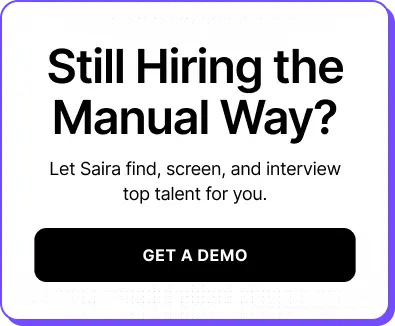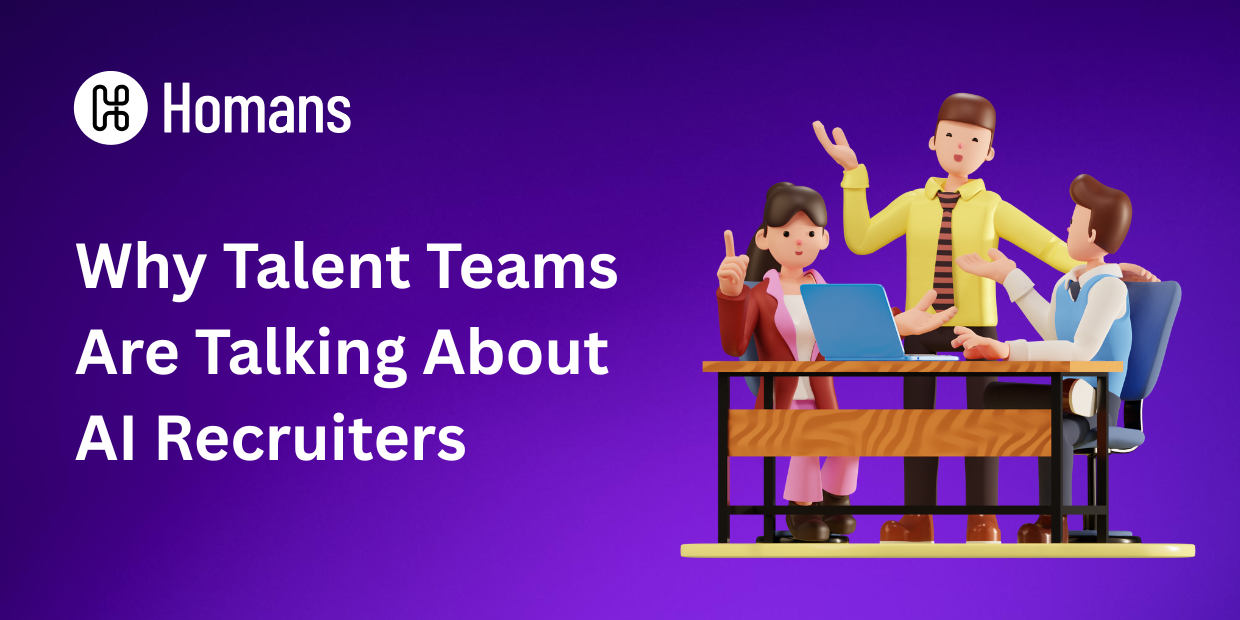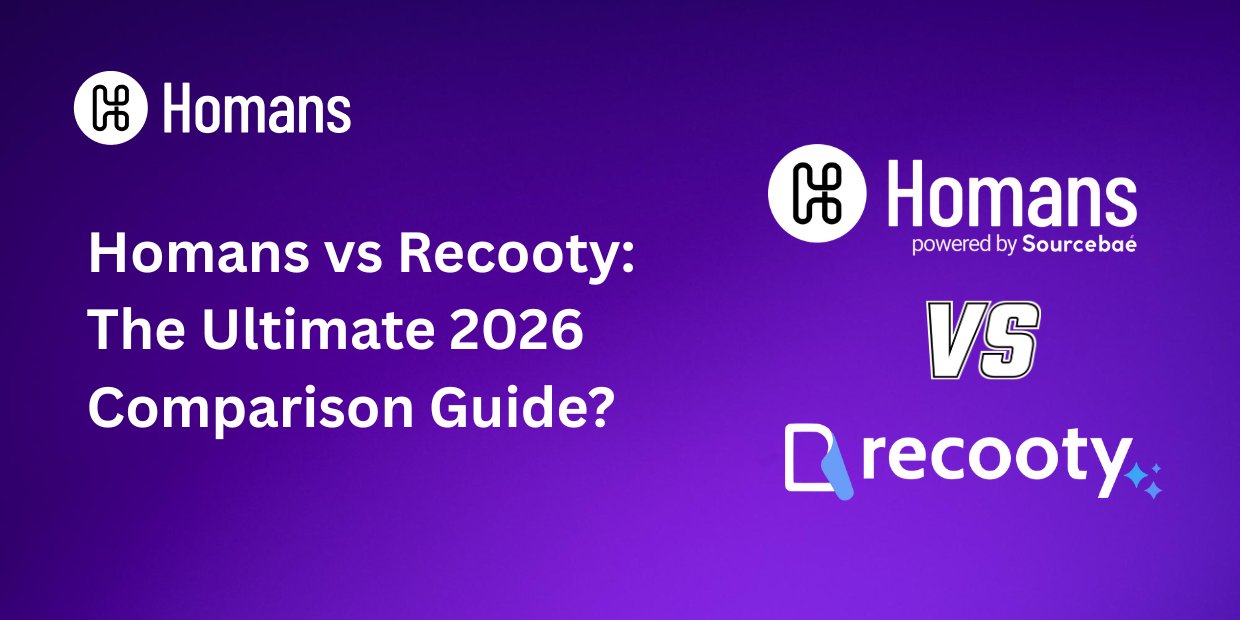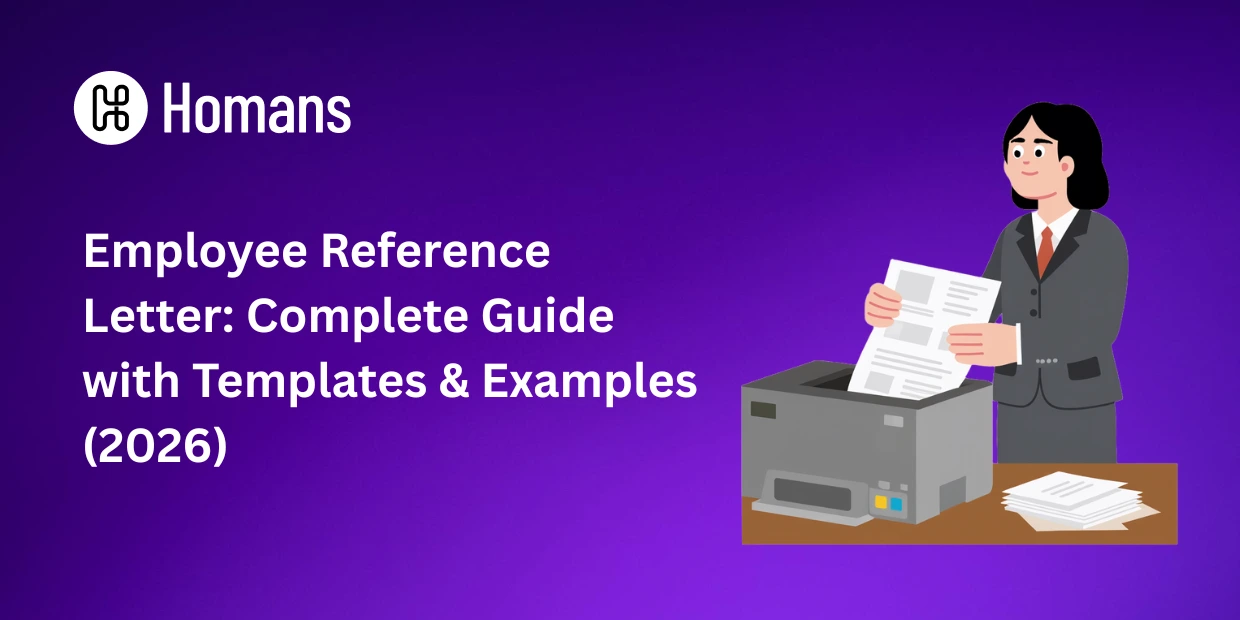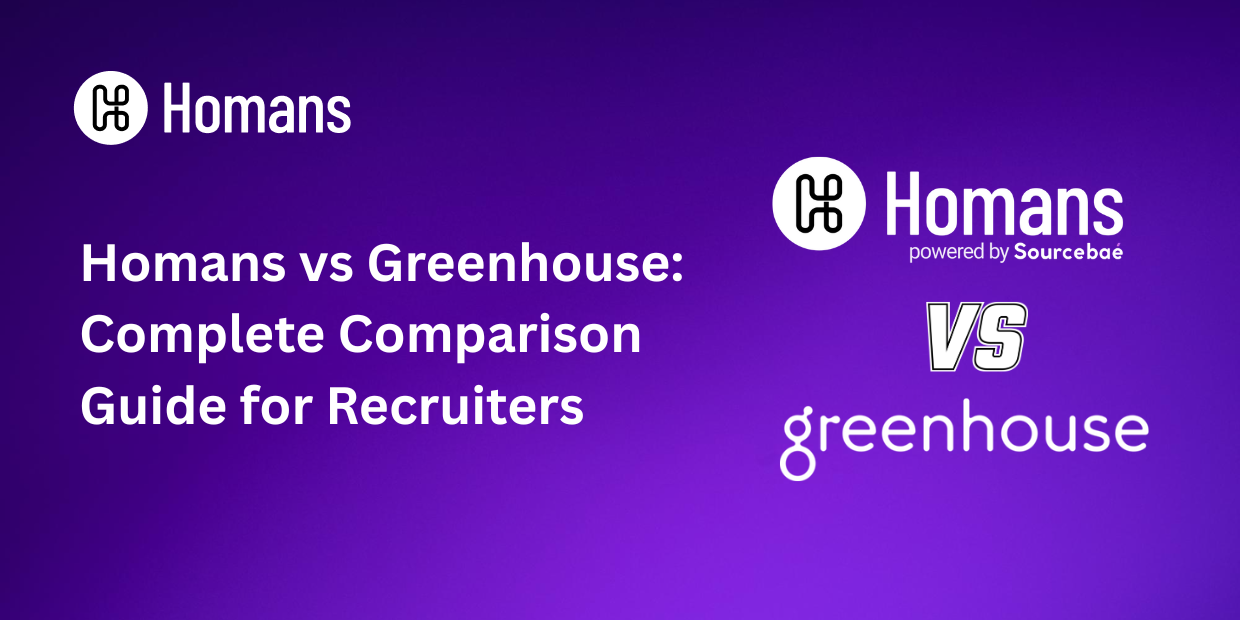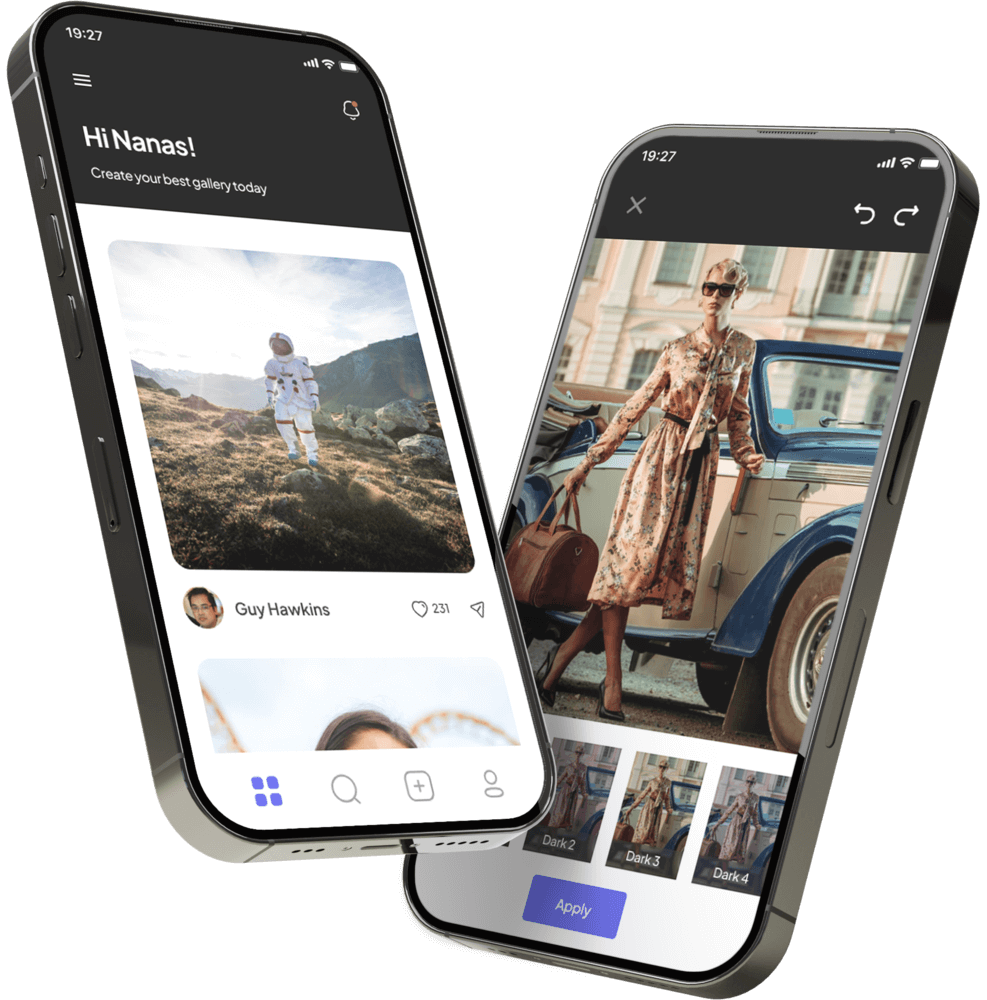The recruitment landscape has undergone a seismic transformation in 2025, with artificial intelligence emerging as the game-changing force that’s revolutionizing how talent teams operate. AI recruiters are no longer a futuristic concept—they’re the competitive advantage that forward-thinking organizations are leveraging to outpace competitors and secure top talent in an increasingly challenging market.
70% of hiring teams now use AI to accelerate recruitment1, while companies implementing AI recruiting tools report 62% faster hiring times and 59% lower costs1. This isn’t just a trend—it’s a fundamental shift that’s redefining the entire talent acquisition ecosystem. Organizations that haven’t embraced AI in talent acquisition are finding themselves 52% more likely to lose top candidates to competitors who have2.
The Rise of AI in Recruitment: Market Statistics and Adoption Rates
The artificial intelligence recruiting revolution is backed by compelling data that reveals the magnitude of this transformation. The AI recruitment market, valued at $661.56 million in 2023, is projected to reach $1.12 billion by 20303, reflecting unprecedented adoption across industries.
Current adoption statistics paint a clear picture of this momentum:
- 87% of companies now use AI-driven tools to revolutionize their hiring process3
- 46% of talent acquisition leaders believe AI will significantly impact candidate sourcing and screening4
- 84% of business leaders see AI-powered recruitment as crucial to maintain competitive edge5
- 42% of talent acquisition teams are already using AI extensively throughout the recruitment process6
The transformation extends beyond simple automation. Machine learning recruiting capabilities have evolved to deliver sophisticated predictive analytics, enabling organizations to forecast hiring needs and identify high-potential candidates before they even enter the job market7. Companies like Unilever have saved over 100,000 hours annually using AI recruitment tools, while General Motors cut $2 million in hiring costs8.
Key Benefits Driving AI Recruiter Adoption
Talent teams are talking about AI recruiters because the benefits are both immediate and transformational. The primary drivers behind this adoption reveal why AI recruiting has become indispensable for modern talent acquisition strategies.
Unprecedented Time Savings and Efficiency
AI recruitment tools deliver dramatic efficiency gains that fundamentally change how recruiters spend their time. Traditional recruitment methods consume 23 hours per hire on resume screening alone9, with recruiters spending 40% of their time reviewing applications manually10. AI recruiting transforms this equation:
- 85% reduction in screening time with AI implementation11
- 40-60% reduction in time-to-hire through automated processes12
- 75% faster candidate sourcing compared to conventional techniques13
- 88% of interviews scheduled within 24 hours when using AI scheduling14
Enhanced Quality of Hire and Candidate Matching
AI in talent acquisition doesn’t just work faster—it works smarter. Machine learning algorithms analyze millions of data points to identify patterns in successful hires, delivering superior candidate matching that surpasses human capabilities:
- 50% increase in quality of hires reported by companies using AI recruitment tools15
- 14% higher likelihood that AI-selected candidates will pass interviews16
- 18% more likely that AI-sourced candidates will accept job offers17
- Hiring for skills is 5 times more predictive of job performance than traditional methods16
Significant Cost Reduction and ROI
The financial impact of AI recruiting provides compelling justification for adoption. Recruitment process automation delivers measurable cost savings across multiple dimensions:
- 30-40% reduction in direct cost-per-hire with AI implementation11
- $50,000+ potential savings from avoiding bad hires through better screening18
- 75% reduction in screening costs through automation5
- 45% reduction in manual administrative work11
How AI Recruiters Transform the Hiring Process
AI recruiters are revolutionizing every stage of the hiring pipeline, from initial candidate sourcing to final onboarding. This transformation represents a paradigm shift from reactive to proactive talent acquisition.
Intelligent Candidate Sourcing and Screening
AI recruitment software leverages advanced algorithms to identify top talent across diverse talent pools with unprecedented speed and precision4. Natural language processing and machine learning enable these systems to:
- Analyze millions of candidate profiles across multiple platforms simultaneously
- Identify passive candidates who aren’t actively job searching but match role requirements
- Expand talent pools by recognizing transferable skills and non-traditional backgrounds
- Reduce unconscious bias by focusing on objective, job-relevant criteria4
Programmatic advertising powered by AI allows organizations to target specific skill sets, locations, and behavioral attributes in real-time, ensuring job postings reach the right audience while improving applicant quality and ROI4.
Automated Resume Parsing and Analysis
AI resume screening in 2025 goes far beyond keywords. Sophisticated Natural Language Processing (NLP) analyzes contextual meaning, transferable skills, and career progression patterns19. This meaningful assessment approach:
- Evaluates candidate potential rather than just past experience
- Identifies non-traditional career paths that traditional screening might miss
- Analyzes soft skills indicators through language patterns and communication style
- Predicts candidate success based on historical performance data
Personalized Candidate Engagement
AI-powered chatbots and intelligent messaging systems create personalized candidate experiences that operate 24/720. These systems:
- Engage candidates instantly with relevant questions and information
- Schedule interviews automatically based on mutual availability
- Provide real-time updates throughout the recruitment process
- Answer frequently asked questions without human intervention
58% of job seekers are comfortable interacting with AI chatbots in early application stages17, while automated systems improve scheduled interview show rates significantly17.
Challenges and Ethical Considerations in AI Recruiting
While AI recruiters offer tremendous advantages, talent teams must navigate significant challenges to ensure ethical and effective implementation. Understanding these limitations and risks is crucial for responsible AI adoption.
Algorithmic Bias and Fairness Concerns
AI bias in recruitment represents one of the most pressing challenges facing the industry. Algorithmic bias often stems from underlying biases in training data, resulting in unfair outcomes that can perpetuate existing inequalities21:
- Historical bias in training data reflects past discriminatory practices
- Sampling bias occurs when training data isn’t representative of the applicant pool
- Measurement bias can be introduced through flawed data collection methods
- Gender and racial biases can be inadvertently encoded into algorithms
High-profile cases, such as LinkedIn’s job recommendation algorithms favoring male candidates over female ones, underscore the critical importance of continuous auditing and monitoring22. Organizations must implement comprehensive bias detection systems and regular algorithm reviews to maintain fairness.
Privacy and Data Security Concerns
AI-driven recruitment systems process vast amounts of personal data, raising significant concerns about candidate privacy and regulatory compliance22. Key challenges include:
- GDPR, CCPA, and EEOC compliance requirements
- Secure data storage and transmission protocols
- Transparent consent processes for data collection and usage
- Data minimization practices to collect only necessary information
Biometric data usage in AI-based assessments raises additional ethical concerns about consent and data security22.
Loss of Human Touch and Over-Automation
Overreliance on AI recruiting can lead to significant drawbacks in the hiring process:
- Difficulty evaluating soft skills like leadership, adaptability, and emotional intelligence22
- Overlooking candidates with unconventional career paths due to rigid AI filters
- Reduced opportunities for personalized candidate assessment
- Candidate frustration with impersonal, automated processes22
65% of job seekers report inconsistent communication during AI-driven hiring processes, leading 82% to lose trust in employers8.
ROI and Cost-Effectiveness of AI Recruitment Tools
The financial impact of AI recruiting extends far beyond initial cost savings, delivering comprehensive ROI across multiple dimensions of talent acquisition performance.
Direct Cost Savings and Efficiency Gains
AI recruitment tools deliver immediate, measurable savings that justify implementation costs:
Time-Based Savings:
- Traditional method: 4-8 weeks to fill a role
- With AI: 40-60% reduction in time-to-hire12
- Productivity impact: Every open role costs companies lost productivity and team overextension
Administrative Cost Reduction:
- Resume screening: From 23 hours per hire to minutes with AI9
- Interview coordination: 60% reduction in scheduling time11
- Communication overhead: 45% reduction in manual administrative work11
Quality and Retention Improvements
AI recruiting ROI extends to long-term organizational benefits:
- 16% increases in diversity reported by companies using AI-driven recruitment3
- 34% longer retention for employees hired through skills-based AI assessment16
- 30% improvement in time-to-hire and 25% reduction in recruitment costs23
- 92% of firms report already seeing benefits from AI implementation24
Measurable Performance Metrics
Organizations can track specific ROI indicators to measure AI recruiting success:
Foundation Metrics:
- Cost-per-hire reduction: Typically 30-40% with AI implementation11
- Recruiter productivity: Requisitions handled per recruiter increases significantly
- Submission-to-interview ratio: Improved candidate quality leads to better conversion rates
Impact Metrics:
- Predictive accuracy measurements for candidate success prediction
- Hiring manager satisfaction scores reflecting improved candidate quality
- New hire retention at 90/180/365-day intervals11
Future Trends: What’s Next for AI in Talent Acquisition
AI recruiting trends 2025 reveal an exciting trajectory toward more sophisticated, ethical, and human-centric talent acquisition technologies. Talent teams are preparing for transformational advances that will further revolutionize the industry.
Agentic AI and Autonomous Recruiting
Agentic AI represents the next evolution in AI recruiters, featuring intelligent systems that operate autonomously to perform complex recruitment tasks25. These advanced AI agents:
- Make decisions and adjust behavior based on outcomes
- Continuously improve through machine learning and real-world feedback
- Handle end-to-end recruitment processes with minimal human intervention
- Adapt in real-time to changing market conditions and candidate preferences
More than two-thirds of leaders see increased AI usage as a top talent acquisition trend for 202521, with agentic AI leading this transformation.
Enhanced Predictive Analytics and Workforce Planning
Machine learning recruiting capabilities are evolving toward comprehensive workforce intelligence:
- Predictive talent acquisition that forecasts hiring needs before roles become vacant7
- Skills gap analysis using AI algorithms to identify organizational deficiencies26
- Market intelligence providing real-time insights into talent availability and compensation trends27
- Succession planning powered by predictive models that identify internal promotion candidates
Ethical AI and Bias Mitigation
The future of AI recruiting prioritizes fairness, transparency, and inclusivity:
- Advanced bias detection algorithms that continuously monitor for discriminatory patterns
- Explainable AI that provides transparent decision-making processes
- Diverse training datasets that better represent global talent pools
- Human-AI collaboration models that leverage both algorithmic efficiency and human judgment
IBM’s AI Fairness 360 toolkit exemplifies industry efforts to promote ethical AI practices in recruitment22.
Integration with Emerging Technologies
AI recruitment tools are integrating with complementary technologies to create comprehensive talent ecosystems:
- Voice AI and conversational interfaces for natural candidate interactions
- Virtual and augmented reality for immersive candidate assessments
- Blockchain technology for secure credential verification
- IoT integration for real-time workplace analytics and culture matching
The global artificial intelligence in HR market is projected to grow at 24.8% CAGR from 2024 to 203028, indicating continued investment and innovation in these technologies.
Conclusion: The Strategic Imperative of AI Recruiters
Talent teams are talking about AI recruiters because they represent more than technological advancement—they embody a strategic imperative for organizational survival and growth in the modern talent landscape. The evidence is overwhelming: AI recruiting delivers measurable improvements in efficiency, quality, cost-effectiveness, and candidate experience.
Organizations that embrace AI recruitment tools gain competitive advantages that compound over time: faster hiring cycles, better candidate matching, reduced costs, and improved diversity outcomes. Conversely, companies that delay AI adoption face increasing disadvantages in attracting top talent and optimizing recruitment performance.
The future of talent acquisition is AI-powered, human-centric, and data-driven. Talent teams that master this integration will build stronger organizations, deliver exceptional candidate experiences, and achieve sustainable competitive advantages in the evolving world of work.
The conversation about AI recruiters isn’t about whether to adopt these technologies—it’s about how quickly and effectively organizations can implement them to transform their talent acquisition capabilities. The time for experimentation has passed; the era of AI-driven recruitment excellence has arrived.

